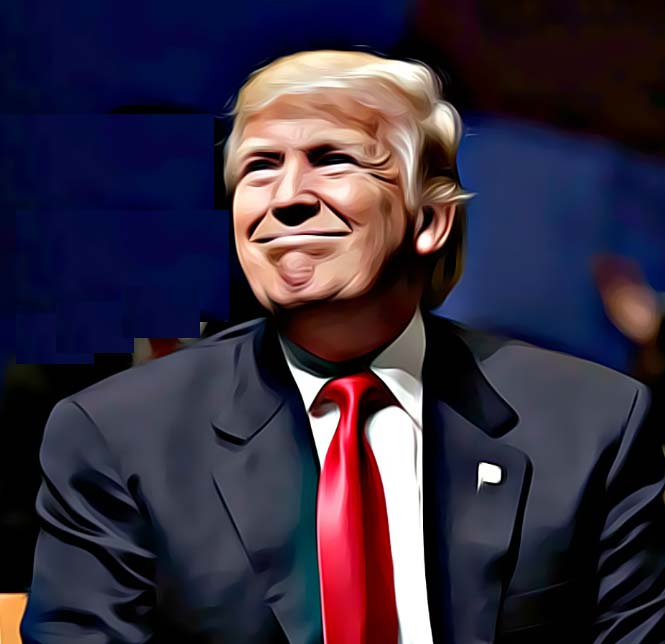
The president in question was not Donald Trump. It was Ronald Reagan, who in his first year in office raised the possibility that the United States and the Soviet Union could survive an exchange of tactical nuclear weapons.
That same year Richard Pipes, Reagan's director of East European and Soviet affairs on the National Security Council, told The Post he thought the probability of nuclear war was about 40 percent. These remarks sent a signal to Moscow that Reagan was not like those who came before him. He did not want war, but he would not shy from one if provoked.
That message was received. In 1981, then-KGB chief and future Soviet leader Yuri Andropov declared at a major KGB conference that Reagan "was actively preparing for war and that a nuclear first strike was possible."
Two years later, Margaret Thatcher shared intelligence from KGB Colonel Oleg Gordievsky (who was working for the British) that Russian officials were increasingly convinced Reagan was getting ready for a nuclear first strike and was running drills to prepare for it. Indeed, NATO did carry out an exercise for a nuclear exchange - "Able Archer 83" - which included planes taxiing onto runways with realistic dummy nuclear warheads.
Again, Reagan did not disabuse the Soviets of the notion. Quite the opposite: The next year he joked when testing his microphone before his weekly radio address "We begin bombing in five minutes." The belief of Soviet leaders that Reagan might just be crazy enough to push the nuclear button constrained Soviet behavior and helped make possible a peaceful end to the Cold War.
Now Trump is trying to send a similar message to the North Korean regime. His recent tweet telling Pyongyang that his nuclear button is "much bigger & more powerful" than Kim Jong Un's was neither unstable nor stupid. To the contrary, it was part of an intentional campaign designed to get North Korea to understand that Trump, unlike his predecessors, is willing to use force to stop Pyongyang from threatening American cities.
For decades, the North Koreans have believed that they are untouchable because they can incinerate Seoul with conventional weapons. Now, they are on a crash course to develop and deploy the capability to incinerate U.S. cities with nuclear weapons. They think the pursuit of these weapons is making them even safer.
Trump is trying to convince them that the opposite is true. The best chance to prevent such a use of force is if North Korea receives and believes this message. So we'd all better hope that Trump succeeds.
On "Fox News Sunday," CIA Director Mike Pompeo underscored Trump's message, declaring that "We want the regime to understand that, unlike before, we are intent on resolving this and it is our firm conviction that resolving this diplomatically is the correct answer but that this administration is prepared to do what it takes to assure that people in Los Angeles, in Denver, in New York are not held at risk from Kim Jong Un having a nuclear weapon."
All those in the perpetual outrage machine who are calling Trump a "madman" for his tweet are also inadvertently helping him send that message to Pyongyang - just as Reagan's critics helped convince Moscow that he was a madman.
Are Trump's threats of military action a bluff? No. As national security adviser H.R. McMaster recently explained, Trump is "not going to allow this murderous, rogue regime to threaten the United States with the most destructive weapons on the planet." Trump tweeted in August that "Military solutions are now fully in place, locked and loaded, should North Korea act unwisely. Hopefully Kim Jong Un will find another path!"
This does not mean nuclear war. If North Korea persists in testing, it could involve a targeted military strike taking out Pyongyang's ballistic missile and nuclear facilities. Furthermore, as my American Enterprise Institute colleague Oriana Skylar Mastro recently pointed out, "Kim understands that a second Korean War would end with his demise, and therefore he has incentives to avoid such escalation.
Assuming Kim is rational then, it is possible that the United States could conduct a limited surgical strike and North Korea's response would be minimal."
Trump's tweets are intended to prevent us from getting to that point. They are not only entirely rational but also strategically smart. Let's hope his critics keep questioning his sanity, because it can only help convince Kim that Trump is serious.
Comment by clicking here.


 Contact The Editor
Contact The Editor
 Articles By This Author
Articles By This Author